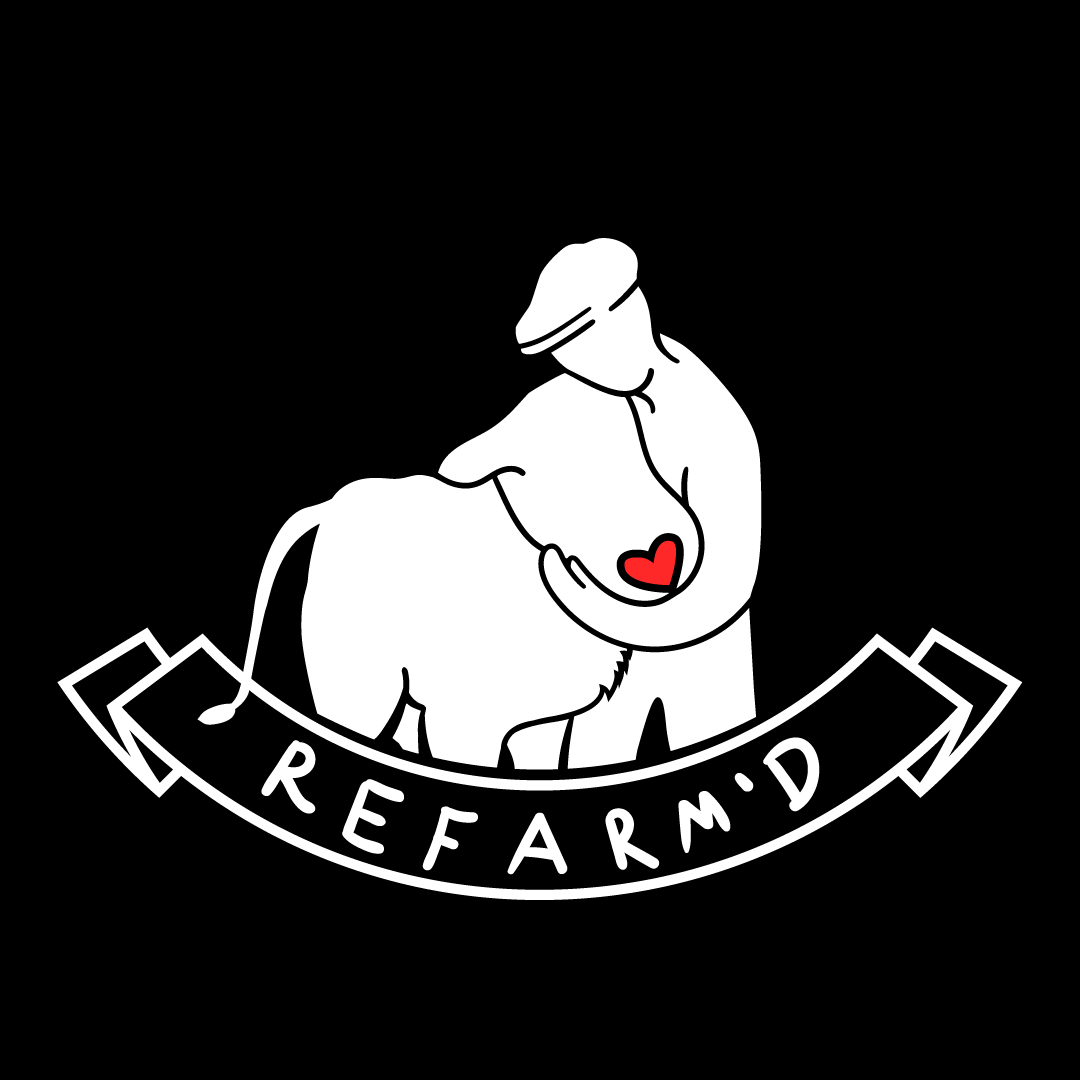*Originally published 5 May 2020*
Have you ever wondered what a plant-based world looks like? Have your eyes gleamed at the possibility, but a little voice called Doubt savagely trespassed your dream?
You’re not alone. After knowing the undeniable benefits of a plant-based food system, it’s difficult to ignore. However, the scale of this mission is intimidating and can often leave you feeling worse off. That’s why we are so excited to bring to you Geraldine Starke from Refarm’d who is bringing us one step closer to a plant-based world.
Geraldine dreamt of making an animal sanctuary but struggled with the fact that sanctuaries rely heavily on donations to operate and are tough to scale up i.e. helping more and more animals out of their life as commodities, becomes difficult. After considering all the factors required to build, operate and maintain sanctuaries she realised that dairy farms met all of these needs right where they were operating from! She began creating her dream into a reality by developing an end-to-end method for dairy farmers to transition to plant-based milks and convert their farms into sanctuaries. She created Refarm’d.
Why is her work important?
In the UK alone, dairy farming produces over 40 million litres of milk per day and is the largest in the agricultural sector: accounting for 16.85%. Small-medium scale dairy farms have been struggling economically and are increasingly falling into the hands of a few, larger farmers. The intensification of dairy has several impacts: environmental, social (animal welfare and human health), economical. Our current system means that dairy system changes in the European Union have been focused consistently on productivity: increasing efficiency and revenue. This comes at a large cost:
Environmental
- Between 2005 and 2015 there was an increase of 18 per cent (256 million tonnes) of CO₂ eq.
- As countries become wealthier, populations adopt more dairy into their diet, increasing the demand for dairy overall — there are at least 270 million dairy cows being farmed globally. Dairy farming contributes to greenhouse gases, soil degradation and wildlife loss and polluting of waterways.
Animal Welfare
- Science shows that cows are social beings, need space to exercise and experience trauma. Focuses on productivity ignore these facts and health is measured as the absence of disease and infirmity. Increasingly, dairy cows suffer from more mental and physical illness
- Smaller farmers are often left with no choice but to hand over their farm or cows to larger farms where their inevitable fates will be little social interaction, less space and lack of autonomy over their own bodies.
Livelihoods and Human Health
- Current trading systems undermine small scale production; falling milk prices and a constant need to increase the output of milk are pushing small and medium-sized farms out of business having a knock on effect in the community.
- Dairy farming can contribute to poor human health “through acute and chronic soil, air and water pollution as well as by increasing exposure to zoonotic diseases, pathogens and exacerbating the risk of anti-microbial resistance”.
It is clear, with the current and projected dairy farming methods, human health, animal welfare, environmental and social impacts are going to worsen. What Refarm’d aim to achieve is important.
How is it possible for a single woman to change the minds of not one, but several dairy farmers across Europe?
When we spoke to Geraldine in January, she briefly touched upon how she builds her relationships with farmers and helps them to transition. However, in order that the relationship is productive and long-standing, she needs to take into consideration the needs of the farmers.
She said,
“for farmers, they are proud of what they do — they feed the country — it’s their identity and that’s something Refarm’d take into account. Refarm’d will not be a globalised product. The farmer will get to have their own unique product. The farmers can decide their own prices. They take pride in the changes they are making- making it as carbon neutral as possible: renewable energy, planting trees, taking care of the animals in the long term etc.”

On 8th May at 18:00 BST Animal Rebellion is holding a Facebook Live Q&A to find out more. Animal Rebellion will explore her story and her work with current farmers, why several farmers across Europe are turning to plant-based milk, the social, environmental and economical benefits of her work and what people can do to enact change.
To support Geraldine you can “spread the message, spread the project”. Itgives her more opportunities which allow her to speak to more people and farmers. You can help her with anything you are passionate about: “people help me with the legal side, making a documentary or on the social media side”. She also needs people to fill out the market research form on her website so she can collect data on consumer demand. The more support and attention Refarm’d get, the more she can demonstrate that there is support and demand for this transition.
Website: https://en.refarmd.com/
Instagram: refarmd_official
Facebook:https://www.facebook.com/refarmd/


One thought on “Refarm’d: One Step Closer to a Plant-Based World”
Comments are closed.